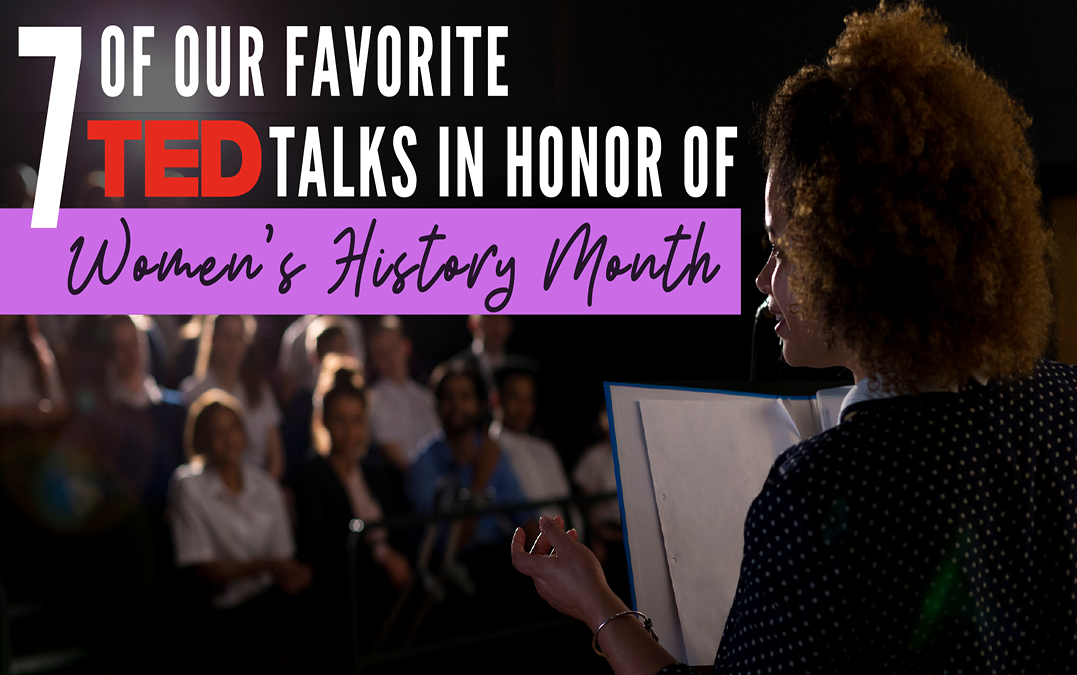
8 Books for Your 2021 Summer Reading List
“I am still learning,” is a quote attributed to Michelangelo on his 81st birthday.
Even those born with innate skills who achieve the highest levels of success in their fields can benefit from continuous development. If you’re looking for titles to add to your summer reading list to broaden yourself personally or professionally, we’ve gathered an array of new books for seasoned and emerging leaders alike.
1. Think Again: The Power of Knowing What You Don’t Know by Adam Grant
What it’s about: Organizational psychologist Adam Grant is an expert on opening other people’s minds—and our own. As Wharton’s top-rated professor and the bestselling author of Originals and Give and Take, he makes it one of his guiding principles to argue like he’s right but listen like he’s wrong. With bold ideas and rigorous evidence, he investigates how we can embrace the joy of being wrong, bring nuance to charged conversations, and build schools, workplaces, and communities of lifelong learners.
Why pick it up: You’ll learn how an international debate champion wins arguments, a Black musician persuades white supremacists to abandon hate, a vaccine whisperer convinces concerned parents to immunize their children, and coaxing Yankees fans to root for the Red Sox. Think Again reveals that we don’t have to believe everything we think or internalize everything we feel. It’s an invitation to let go of views that are no longer serving us well and prize mental flexibility over foolish consistency. If knowledge is power, knowing what we don’t know is wisdom.
2. Noise: A Flaw in Human Judgment by Daniel Kahneman, Olivier Sibony, and Cass R. Sunstein
What it’s about: Imagine that two doctors in the same city give different diagnoses to identical patients—or that two judges in the same courthouse give markedly different sentences to people who have committed the same crime. Suppose that different interviewers at the same firm make different decisions about indistinguishable job applicants—or that when a company is handling customer complaints, the resolution depends on who happens to answer the phone. Now imagine that the same doctor, the same judge, the same interviewer, or the same customer service agent makes different decisions depending on whether it is morning or afternoon, or Monday rather than Wednesday. These are examples of noise: variability in judgments that should be identical.
Why pick it up: In Noise, Daniel Kahneman, Olivier Sibony, and Cass R. Sunstein show the detrimental effects of noise in many fields, including medicine, law, economic forecasting, forensic science, bail, child protection, strategy, performance reviews, and personnel selection. Wherever there is judgment, there is noise. Yet, most of the time, individuals and organizations alike are unaware of it. They neglect noise. With a few simple remedies, people can reduce both noise and bias, and so make far better decisions.
3. Humor, Seriously: Why Humor Is a Secret Weapon In Business and Life by Jennifer Aaker and Naomi Bagdonas
What it’s about: There exists a mistaken belief in today’s corporate world: that we have to be serious all the time in order to be taken seriously. But the research tells a different story: that humor can be one of the most powerful tools we have for accomplishing serious things. Studies show that humor makes us appear more competent and confident, strengthens relationships, unlocks creativity, and boosts our resilience during difficult times. Plus, it fends off a permanent and unsightly frown known as “resting boss face.” That’s why Jennifer Aaker and Naomi Bagdonas teach the popular course Humor: Serious Business at the Stanford Graduate School of Business, where they help some of the world’s most hard-driving, blazer-wearing business minds build levity into their organizations and lives.
Why pick it up: Aaker and Bagdonas unpack the theory and application of humor: what makes something funny and how to mine your life for material. They show how to use humor to make a strong first impression, deliver difficult feedback, persuade and motivate others, and foster cultures where levity and creativity can thrive—not to mention, how to keep it appropriate and recover if you cross a line.
4. The Premonition: A Pandemic Story by Michael Lewis
What it’s about: The people you will meet in these pages are as fascinating as they are unexpected. A thirteen-year-old girl’s science project on transmission of an airborne pathogen develops into a very grown-up model of disease control. A local public health officer uses her worm’s-eye view to see what the CDC misses, and reveals great truths about American society. A secret team of dissenting doctors, nicknamed the Wolverines, has everything necessary to fight the pandemic: brilliant backgrounds, world class labs, prior experience with the pandemic scares of bird flu and swine flu…everything, that is, except official permission to implement their work.
Why pick it up: Michael Lewis is not shy about calling these people heroes for their refusal to follow directives that they know to be based on misinformation and bad science. Even the internet, as crucial as it is to their exchange of ideas, poses a risk to them. They never know for sure who else might be listening in.
5. Dear Bob . . . Bob Hope’s Wartime Correspondence with the G.I.s of World War II by Martha Bolton and Linda Hope
What it’s about: For five decades, comedian, actor, singer, dancer, and entertainer Bob Hope (1903–2003) traveled the world performing before American and Allied troops and putting on morale-boosting USO shows. Dear Bob tells the story of Hope’s remarkable service to the fighting men and women of World War II, collecting personal letters, postcards, packages, and more sent back and forth among Hope and the troops and their loved ones back home.
Soldiers, nurses, wives, and parents shared their innermost thoughts, swapped jokes, and commiserated with the “G.I.s’ best friend” about war, sacrifice, lonely days, and worrisome, silent nights. The Entertainer of the Century performed for millions of soldiers in person, in films, and over the radio. He visited them in the hospitals and became not just a pal but their link to home.
Why pick it up: This unforgettable collection of letters and images, many of which remained in Hope’s personal files throughout his life and now reside at the Library of Congress, capture a personal side of both writer and recipient in a very special and often-emotional way. This volume heralds the voices of those servicemen and women and will remind you of the sacrifices made by the Silent Generation—some of whom you may still be lucky enough to have among your workforce.
6. Notes on Grief by Chimamanda Ngozi Adichie
What it’s about: Notes on Grief is an exquisite work of meditation, remembrance, and hope, written in the wake of Chimamanda Ngozi Adichie’s beloved father’s death in the summer of 2020. As the COVID-19 pandemic raged around the world, and kept Adichie and her family members separated from one another, her father succumbed unexpectedly to complications of kidney failure.
Expanding on her original New Yorker piece, Adichie shares how this loss shook her to her core. She writes about being one of the millions of people grieving this year; about the familial and cultural dimensions of grief and also about the loneliness and anger that are unavoidable in it. With signature precision of language, and glittering, devastating detail on the page—and never without touches of rich, honest humor—Adichie weaves together her own experience of her father’s death with threads of his life story, from his remarkable survival during the Biafran war, through a long career as a statistics professor, into the days of the pandemic in which he’d stay connected with his children and grandchildren over video chat from the family home in Abba, Nigeria.
Why pick it up: In the compact format of We Should All Be Feminists and Dear Ijeawele, Adichie delivers a gem of a book—a book that fundamentally connects us to one another as it probes one of the most universal human experiences. Notes on Grief is a book for this moment—a work readers will treasure and share now more than ever—and yet will prove durable and timeless, an indispensable addition to Adichie’s canon.
7. Tiny Habits: The Small Changes that Change Everything by BJ Fogg, PhD
What it’s about: A habit expert from Stanford University shares his breakthrough method for building habits quickly and easily. With Tiny Habits you’ll increase productivity by tapping into positive emotions to create a happier and healthier life. Dr. Fogg’s new and extremely practical method picks up where Atomic Habits left off.
Why pick it up: Based on twenty years of research and Fogg’s experience coaching more than 40,000 people, Tiny Habits cracks the code of habit formation. With breakthrough discoveries in every chapter, you’ll learn the simplest proven ways to transform your life. Fogg shows you how to feel good about your successes instead of bad about your failures.
8. The Best of Outside: The First 20 Years by the Editors of Outside Magazine
What it’s about: The man-eating proclivities of Komodo dragons. The complicated art of being a cowgirl. A picaresque ramble with a merry band of tree-cleaners. The big wave crusaders of the world’s best surfers. For the past twenty years, Outside magazine has set the standard for original and engaging reports on travel, adventure, sports, and the environment. Its 30 articles from the eponymous magazine’s 1977-1997 heyday showcase some of the best adventure writers, literary journalists and essayists of the 20th century.
Why pick it up: The Best of Outside represents the finest the award-winning magazine has to offer: thirty stories that range from high action to high comedy. Whether it’s Jonathan Raban sailing the open sea, Susan Orlean celebrating Spain’s first female bullfighter, or Jim Harrison taking the wheel on a cross-country road trip, each piece can be characterized in a word: unforgettable. Commemorating Outside magazine’s twentieth anniversary, this book is one of the most entertaining and provocative anthologies of the decade.
Question: What books are on your reading list this summer?
Download the infographic 8 Books for Your 2021 Summer Reading List and enjoy your summer reading!
Driven by the premise that excellence is the result of aligning people, purpose and performance, Center for Executive Excellence facilitates training in leading self, leading teams and leading organizations. To learn more, subscribe to receive CEE News!

















